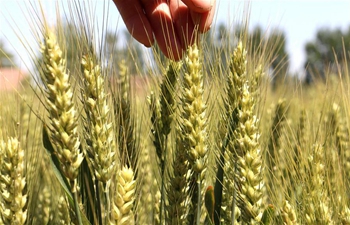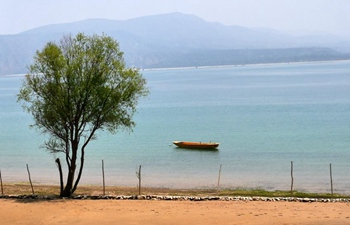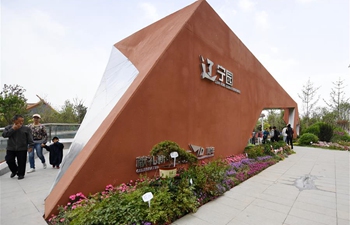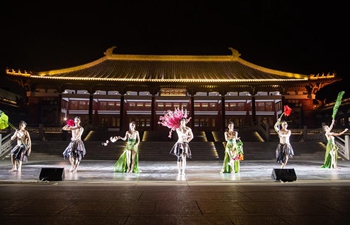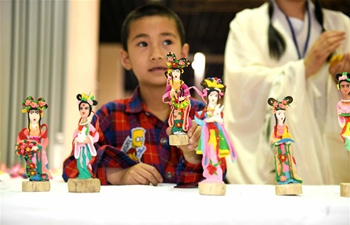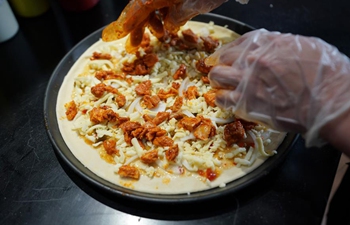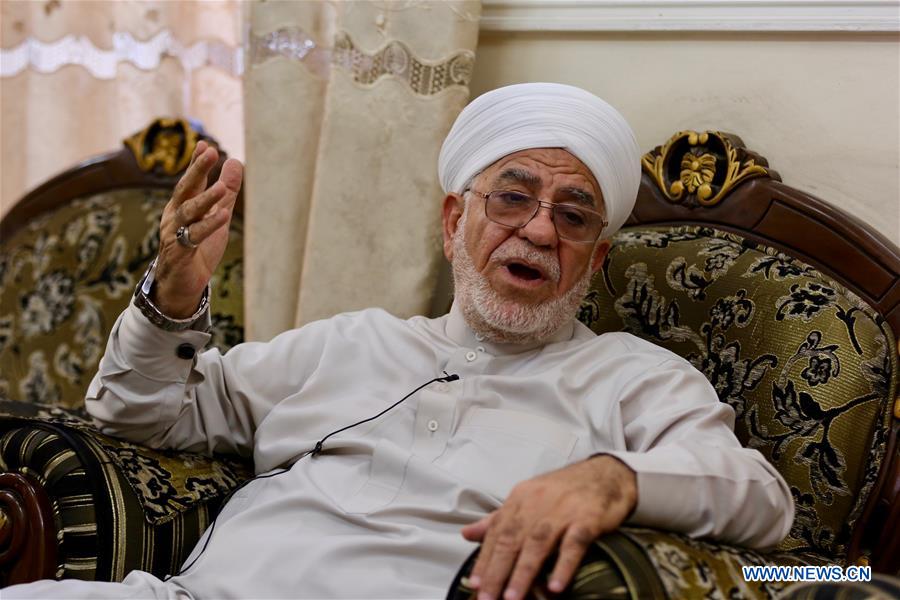
Abdul Majeed al-Hamdani, director of the Abu Hanifa mosque, receives an interview with Xinhua in Baghdad, Iraq, on May 21, 2019. On late Tuesday afternoon, hundreds of Iraqis formed a long queue at the Abu Hanifa mosque in northern Baghdad, waiting to receive Iftar meals offered by the Chinese embassy in Iraq. (Xinhua/Khalil Dawood)
BAGHDAD, May 21 (Xinhua) -- On late Tuesday afternoon, hundreds of Iraqis formed a long queue at the Abu Hanifa mosque in northern Baghdad, waiting to receive Iftar meals offered by the Chinese embassy in Iraq.
Since early afternoon, several cooks prepared giant pots of rice and meat for distribution among poor families in the al-Adhamiyah neighborhood and nearby areas in the Iraqi capital.
"I want to thank the People's Republic of China for this kind gesture of providing Iftar for fasting people in Iraq. It's a sign of goodwill and humanity," an old man told Xinhua after receiving his food.
The Chinese embassy has donated 10,000 U.S. dollars this year to offer Iftar meals, which break the daylight fast by Muslims during the fasting month of Ramadan, for poor families in Baghdad.
Hours before the sunset, each person in the line received a tray of Biryani rice topped by a chop of slowly-cooked lamb meat, chicken thigh or breast with lemon slices -- a delicious meal to break the fast when the sun sets.
"The Chinese gesture will have a wonderful impact on the hearts and minds of Iraqis, and will eventually let the door widely open for cooperation between China and the Islamic world," Abdul Majeed al-Hamdani, director of the Abu Hanifa mosque, told Xinhua.
"We are happy to see the Chinese embassy reach out to our people during times of joy and our religious observance, especially at this hard time in our country," he said, referring to the economic difficulties faced by many Iraqis after years of war with the extremist group Islamic State (IS).
The Chinese embassy's donation will be enough to provide daily Iftar meals for hundreds of people throughout the holy month of Ramadan, al-Hamdani said.
Fasting in Ramadan, the ninth month of the Islamic lunar calendar, is one of the main five pillars of Islam. It begins with the sight of the crescent moon and continues for about 30 days, which started on May 6 this year.
For Muslims, Ramadan is characterized by fasting every day from dawn until sunset, and refraining from eating, drinking and all sinful thoughts, words and deeds. The fasting is meant to keep patience and modesty, while experiencing the pains of the poor people.




